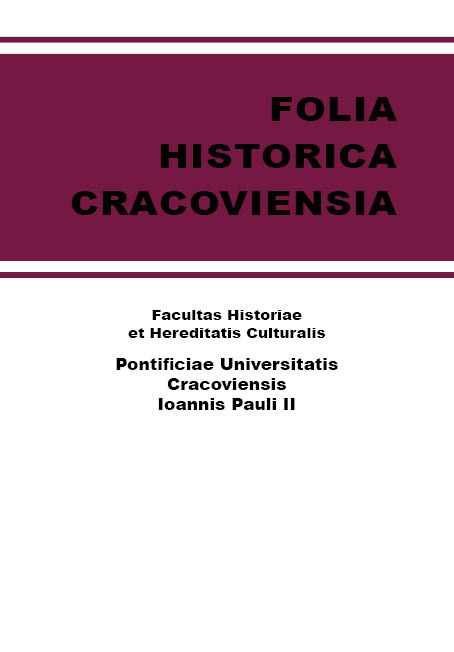
We kindly inform you that, as long as the subject affiliation of our 300.000+ articles is in progress, you might get unsufficient or no results on your third level or second level search. In this case, please broaden your search criteria.

The first part provides an analysis of the concept of culture: the one related with the academic meaning of the word, which expresses the level of a society’s evolution regarding literature, music, and painting, i.e. artistic and intellectual expressions of a society. In addition, this concept includes the anthropological perspective which encompasses the way of life, customs, traditions, beliefs, mindsets, principles, as well as abilities that the individual and the community in which he lives have developed. Further on, an analysis is provided of the concept of culture in glottodidactics and its importance in the program of studying a foreign language. The second part highlights the importance of learning culture and civilization in the foreign language classroom; this is a major task which every teacher and instructor should pay close attention to: when learning a foreign language it not only necessary to acquire knowledge of its morphology and syntax, but also to study aspects of culture and civilization. In order to optimally achieve this, the teacher can use different methods to analyze cultural differences; for example comparisons, simulations, newspapers, media and the classroom too. The third part focuses on the importance of authentic material as this material originally reflects the culture in a particular moment and context. In this way, by the use of this material, the teacher provides students with a way of understanding situations and foreigners’ behavior, in this case the persons who represent the culture and the language being learnt. New technology, such as video and internet, is very good sources of authentic material. Internet is particularly a mere environment where students can interact in order to improve their communicative competences and where they can discover the culture of the language which they are learning.
More...
Society we live in teaches us to think interdisciplinary, to move easily from one area to another and successfully fulfill social roles we are ready. Interdisciplinary connections are not univocal, meaning that the flow of information is one way for an activity; communication takes place in both directions, from one activity to another and vice versa. Interdisciplinary approach assumes that any educational discipline not a closed area, but can establish links between disciplines. The history of mathematics is a field of study is an investigation into the origin of discoveries in mathematics and in a broader sense, an investigation into the mathematical methods and notation of the past. Mathematics is the oldest science, history stretching over several millennia and in many geographical areas simultaneously in the Far East to Central America, and in Asia Minor and Africa to Europe. With good reason, most researchers have considered the evolution of culture and civilization that preceded the writing mathematics, since the discovery of bones with notches, which dates back over 20,000 years BC Belgian geologist Jean de Heinzelin of Braucourt, in 1950, found in volcanic ash on the bank of a lake in the Great Rift Valley of Africa, on the border between Congo and Uganda, which later was called "bone / stick Ishango" more exactly two bones of about 10 to 14 inches, with multiple incisions and secured with a piece of quartz in the thin end of one of the two bones. Notch, not random, are indicative of counting systems, in base 10, and some basic arithmetic.
More...
In Albania, the teaching of Spanish language at schools dates back to 1979. It began for the first time in the high school of foreign languages "Asim Vokshi", where only one language was taught as a foreign language despite the fact that other languages such as English, Russian, French were offered , too, and in 1979 German and Italian was also included. The introduction of Spanish language in 1979 was inevitable due to the necessity of using Spanish manuals. It is a known fact that Albania before the '90s was an isolated country with a communist regime and finding manuals for learning Spanish language was fairly difficult. It was impossible to find or to select an adequate manual as there was none. There was no market at all for Spanish books. You could not find Spanish manuals neither in the National Library nor in other regional libraries. In such a situation of total lack, the only source was the personal library of some Spanish people, Marxist- Leninist ones, the first professors of Spanish language in Albania during the ‘70s and the ‘80s, who were members of the Communist (M-L) Party of Spain and came to Albania to teach Spanish but also to help the communist propaganda for the socialist model built in Albania. The purpose of our paper besides presenting a brief history of Spanish language teaching in Albania is also to bring in focus the examination of Spanish manuals used for more than 30 years, analyzing the manuals before and after the '90s, and to see what was offered then and what is offered today when Spanish is taught not only as a Foreign Language (E / LE), but also as a Content-Based Language
More...
The relationship between accountancy and communication is easily understandable especially from the investors’ point of view. Since until recently almost every country had its own accounting language, the introduction of the international financial reporting standards led to an increase in competitiveness and competition especially in the international market. Specialists believe that this is mainly due to accountancy, but we cannot deny that accounting communication as a process of transmitting the information was also a determining factor. The aim of this article is to highlight the importance of the accounting communication process and especially the importance of the international financial reporting standards, since we live in a society where competitiveness makes the difference between success and failure and information is power. It is also important to emphasize that accounting education plays a key role especially when it comes to investments
More...
Speech accidents can also be evaluated by some psychological constraints as some of the interfering effects of the producing some sounds may cause slip of tongue in the coding-encoding process. Such an error is the result of the transposing of initial sounds of two words; what's more, spoonerism as a linguistic deviation refers to the speech errors of L2 learners while it can also be related to the ones of native speakers. Especially errors in the verbal production of the L2 learners stem from some slips of tongue, which hinder the intended message as a result of some psychological conditions, and sometimes they may convey unintended humorous meaning codes. Spoonerisms of the L2 learners are tried to be explained by a psycholinguistics perspective. In this context, the linguistic conditions that sanction the slips of tongue will be explained through cognitive processes.
More...
Some think that Virtue ethics by A. MacIntyre was the only solution to the moral vacuum in society. Responsibility as an essential. And what is a virtue? To know and understand the modern development of virtue ethics by Alisdaire MacIntyre, learning objective the best way to fill the moral vacuum is to chart our moral virtues. We believe the same thing. Alisdair Chalmers MacIntyre (born 1929) is a Scottish philosopher primarily known for his contribution to moral and political philosophy. He is an extremely influential Catholic philosopher. The thinker directed toward metaphysics, because modern ethical study has lost its way. Since the enlightenment ethics has been dominated by normative theories. The thinker moreover, he understands that there is no past to which we might return. The philosophical task of Alisdaire MacIntyre is to account both for the dysfunctional quality of moral discourse within modern society and rehabilitate what he takes to be a forgotten alternative in the teleological rationality of Aristotelian virtue ethics. MacIntyre's thought is revolutionary as it articulates a politics of self-defence for local communities that aspire to protect their practices and sustain their way of life from corrosive effects of the capitalist economy. The theory of virtue in this respect is open to God. Theory of virtue, being a person with a certain quality of character. As, however, the civilizational progress, higher and higher forms of self-love guide our morality. Civilized man does not act so wickedly, above all that he too much self respect has. Though his respect for himself also produces the appropriate attitude to morality. Virtue ethics refers primarily to the nature of the person. Here I have to be honest, happy, I know how to behave. Due to this process we need to understand each other, we need to practice. We need to reach a certain capacity. Thus need more rules. I gained knowledge of certain principles, it owned a habitual. Whereas the defense of morality the “ethics of dilemma” approach to morality forgets an essential part of ethics - the Person's character and how personal moral growth is encouraged, A. MacIntyre noticed. Saint Thomas but gave bad person narration, which is different from the narrative people by MacIntyre. In the midst of human feelings and common disputes, we are looking for the ultimate truth. A natural morality is forged by people over time through trial and error. For MacIntyre, the practices necessary for training in practical reason through which we acquire the ability to act intelligibly requires the systematic growth of human potential by acquired excellence that cannot help but challenge the character of modern moral practice and theory. We must learn to respond to the feelings that accompany all of us, and are formed preferably in small communities. MacIntyre has sought to help us repair our lives by locating those forms of life that make possible moral excellence. Alisdair MacIntyre convincingly proves that rationality and ethics are inseparable; that it is impossible for the unjust person to think rationally, or for the irrational person to be just. According to MacIntyre's moral language expresses no International Journal of Social and Educational Innovation (IJSEI) No.1/ 2014 38 feeling, but the attitude. We need to find the means to realize the virtues, shape different attitudes and dispositions. Virtue ethics is different from the ethics act. The act is like at the beginning of the great task of shaping a complete man. You have to open up to life, which is good! Make your best. Today, the state of well-being is sought, it is therefore necessary to achieve appropriate social institutions. Virtues as understood by MacIntyre, as some features acquired; as a response to the need for historical descent into the depths of human feelings, they remain inevitable, tighter say, unavoidable for the growth of the human family. This is contemporary virtue ethics Alisdair MacIntyre.
More...
“The family is both the fundamental unit of society as well as the root of culture. It … is a perpetual source of encouragement, advocacy, assurance, and emotional refuelling that empowers a child to venture with confidence into the greater world and to become all that he can be.” (Marianne N. Neifert, Dr. Mom’s Parenting Guide)
More...
The purpose of this research is to treat and identify two major factors that influence teaching, the creation of a positive climate and motivation, which should be encouraged and created with the purpose of successfully fulfilling not just the school programme and objectives defined by it, but also for a psycho-physiological and emotional wellbeing of the student. A good psycho-physical and emotional well-being of the student provide for a better motivation, and, of course, for a better performance. It happens often that teachers concentrate more in the fulfilment of the scholastic programme and neglect or consider it as a loss of time the issue of a positive climate and motivation of students. It goes without saying that learning implies the student’s individual desire, besides the scholastic obligation. This desire which can be instinctive but sometimes driven from family, school and society, is often presented with obstacles during the school year, such as lack of interest, lack of desire to attend classes, lack of desire to learn a subject or all subjects up to total refusal, which endanger the school progress. The causes that influence such a demise are of many forms and different natures, both internal and external, and they increase the student’s affective filter and create psychological barriers which lead to letdown and fail to achieve the defined objectives of subject/s, and they also give way to internal thoughts of incapability and lack of integration in class and in relationship with others, a low self esteem and total lack of want. The concept of the classroom as a sole group where everyone is equal and where everyone receives in the same way motivation, affection and interaction is essential for the creation of a positive climate. By taking into account the factors that influence such discouraging barriers, there comes forth the need for the teacher to search within oneself and his teaching method for the solutions. This means, he has to look for and use new and diverse techniques and strategies that encourage a positive and motivating climate for the students. The teacher should clarify and increase his teaching performance, he should find other motivating forms and he should not let himself get lost in the daily routine and personal discouragement. Students are very sensitive to the teacher’s model and presented teaching method, therefore, in order to achieve the target of a more efficient class, it is needed a thorough internal and external renovation, both theoretical and practical.
More...![Recenzja: Ks. Waldemar Turek, TERTULIAN, opracowanie i wybór tekstów, [w:] Ojcowie Żywi XV, seria pod redakcją ks. Marka Starowieyskiego, Wydawnictwo WAM, Księża Jezuici, Kraków 1999, ss. 296.](/api/image/getissuecoverimage?id=picture_1999_29063.jpg)
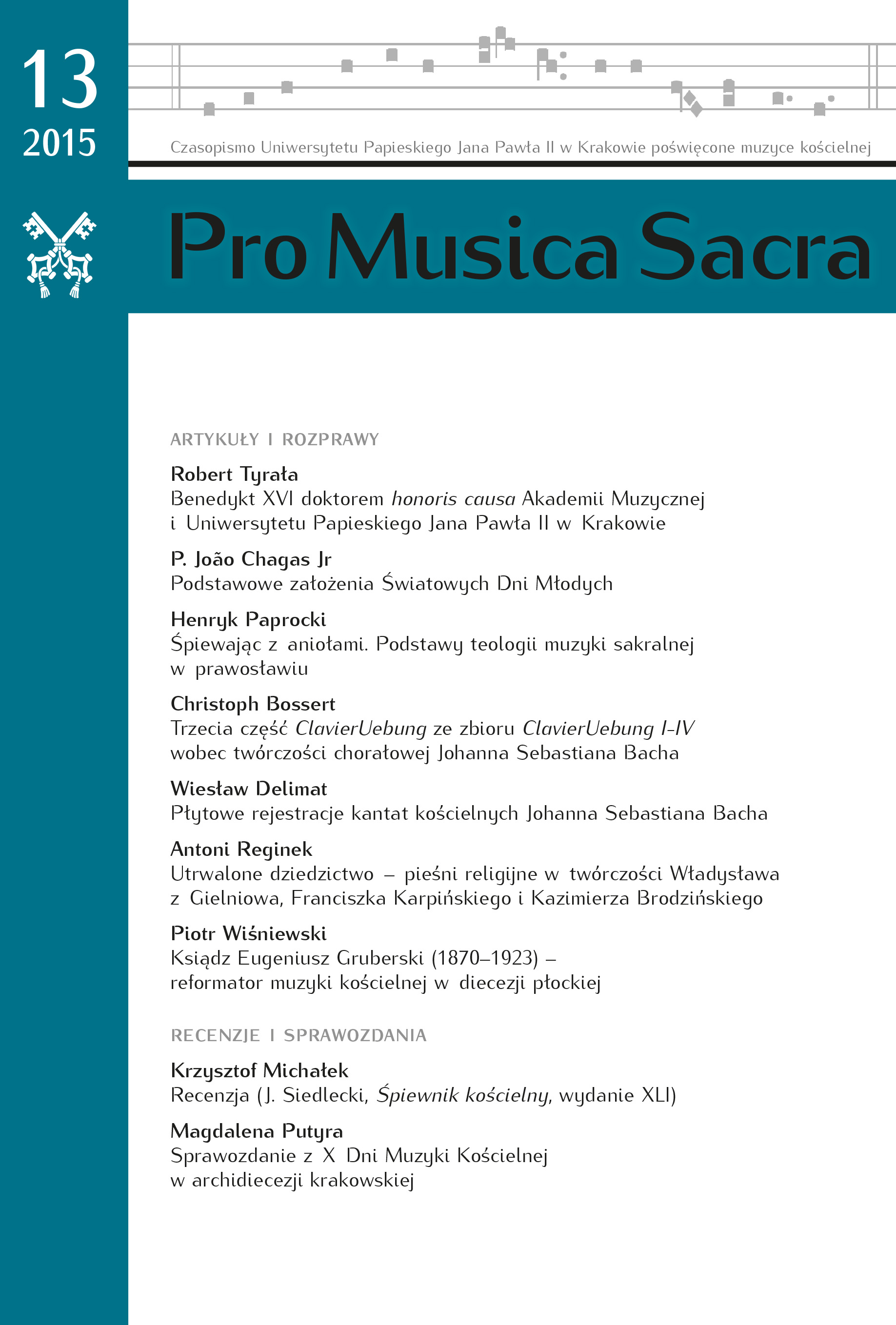
The present paper fouses on the relationship between ideology and the political discourse, as well as on the relationship between ideology and propaganda. Our aim is to undeline the discoursive prospective of the ideology, seen into the global frame of the general communication process. A special attention is given to van Dijk´s three-dimension model of the ideologic discourse, based on a interdisciplinary theory of ideology which takes into consideration the level of the ideology´s nature, the level of its cognitive representation and the level of its modalities of expression.
More...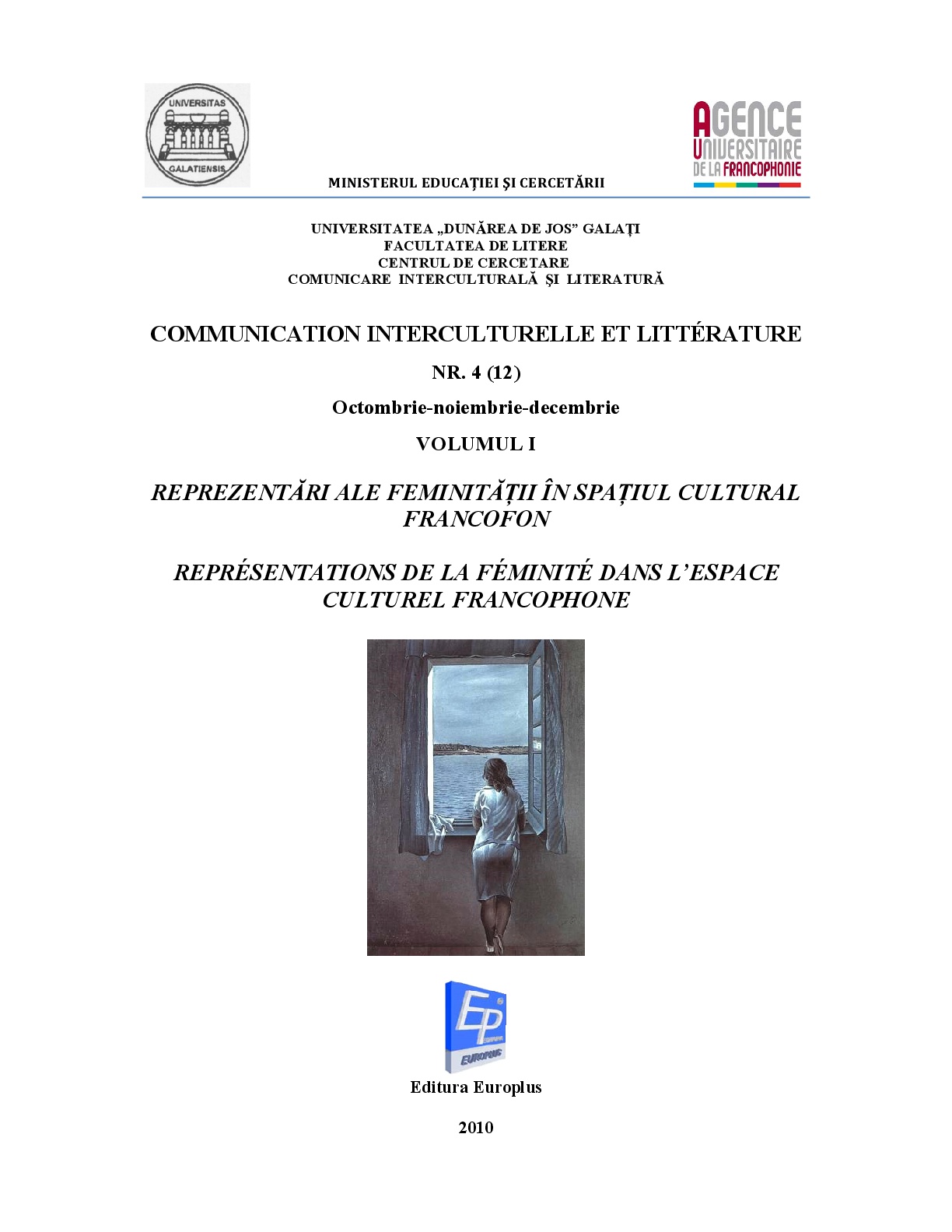
Si les Gender Studies s’inspirent du féminisme, elles sont aussi penchées sur la problématique de l’altérité – coloniale, exotique et autre. En élargissant ce champ de vision au domaine de la littérature francophone et balkanique, j’ai choisi l’œuvre de Cartarescu pour retracer l’histoire de la féminité, de la sexualité et de la rencontre. La rencontre de l’Autre, l’Autre féminin, et du récit qui en découle. Désirant situer l’écriture de l’écrivain francophone roumain dans son intertexte, je vais regarder comment s’inscrivent les modalités du savoir esthétique et érotique contemporain dans le texte de fiction. Celui qui regarde est toujours impliqué dans un rapport dialectique avec l’Autre, vers et à rebours d’une différence qui est à la fois envoûtante et incompréhensible. C’est ce va-et-vient continuel du « Je » masculin par rapport à l’« Autre » féminin dans le récit littéraire de Mircea Cartarescu que je vais analyser, à savoir : l’idée de l’Autre féminin avant la rencontre, le jugement esthétique sur l’Autre, le rapprochement avec l’Autre, l’union avec l’Autre (réelle ou imagée), et le destin final
More...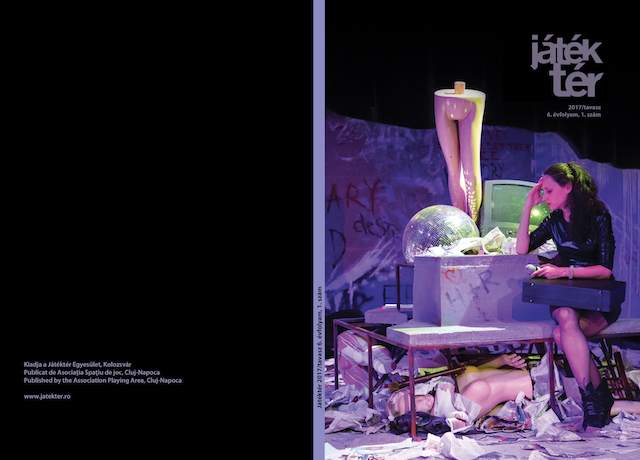
Boglárka Prezsmer reviews a book published by UartPress in 2014. The theme of the edited version of Gabriella Kovács’s doctoral thesis is the utility of applied theatre and drama in foreign-language teaching in schools. The reviewer considers that one of the virtues of the book is that it combines scientific thoroughness with a practical approach, a duality which is one of the essential components of the theme. Kovács Gabriella: Alkalmazott színház és dráma – út a színháztól a nyelvoktatásig. UArtPress−Mentor, Marosvásárhely, 2014.
More...![Odnaleźć swoje wewnętrzne zdanie [dot. M. Wolynn: „Nie zaczęło się od ciebie. Jak dziedziczona trauma wpływa na to, kim jesteśmy, i jak zakończyć ten proces”]](/api/image/getissuecoverimage?id=picture_2017_40401.jpg)
The work is a discussion of the book „It Didn’t Start with You: How Inherited Family Trauma Shapes Who We Are and How to End the Cycle” by Mark Wolynn, an American psychologist who deals with the therapy of inherited trauma. The author presents Wolynn’s basic assumptions regarding trauma and post-trauma and its therapeutic system and she emphasizes the popularizing aspect of the work. Afterwards, she indicates the possibilities and directions of interpretation given by Wolynn’s theory in the context of contemporary Polish prose that regards war traumas and is written by the so-called second generation.
More...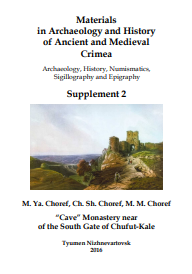

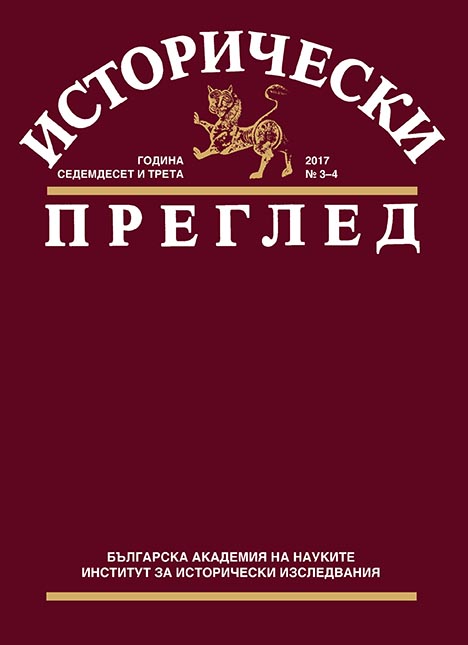
In 2017 in Karlovo several scientific forums were held dedicated to the 180th anniversary of the birth of Vasil Levski. The participants in each of them have contributed to the ever fuller clarification of the life and ideas of Vasil Levski, his followers and adherents. Participants in the conferences and seminars were both scientists and lecturers from the country and abroad, as well as museum specialists, university students, and PhD students. The 80th anniversary of the museum of the Apostle in his hometown was marked by a first-ever review of documentaries about Vasil Levski.
More...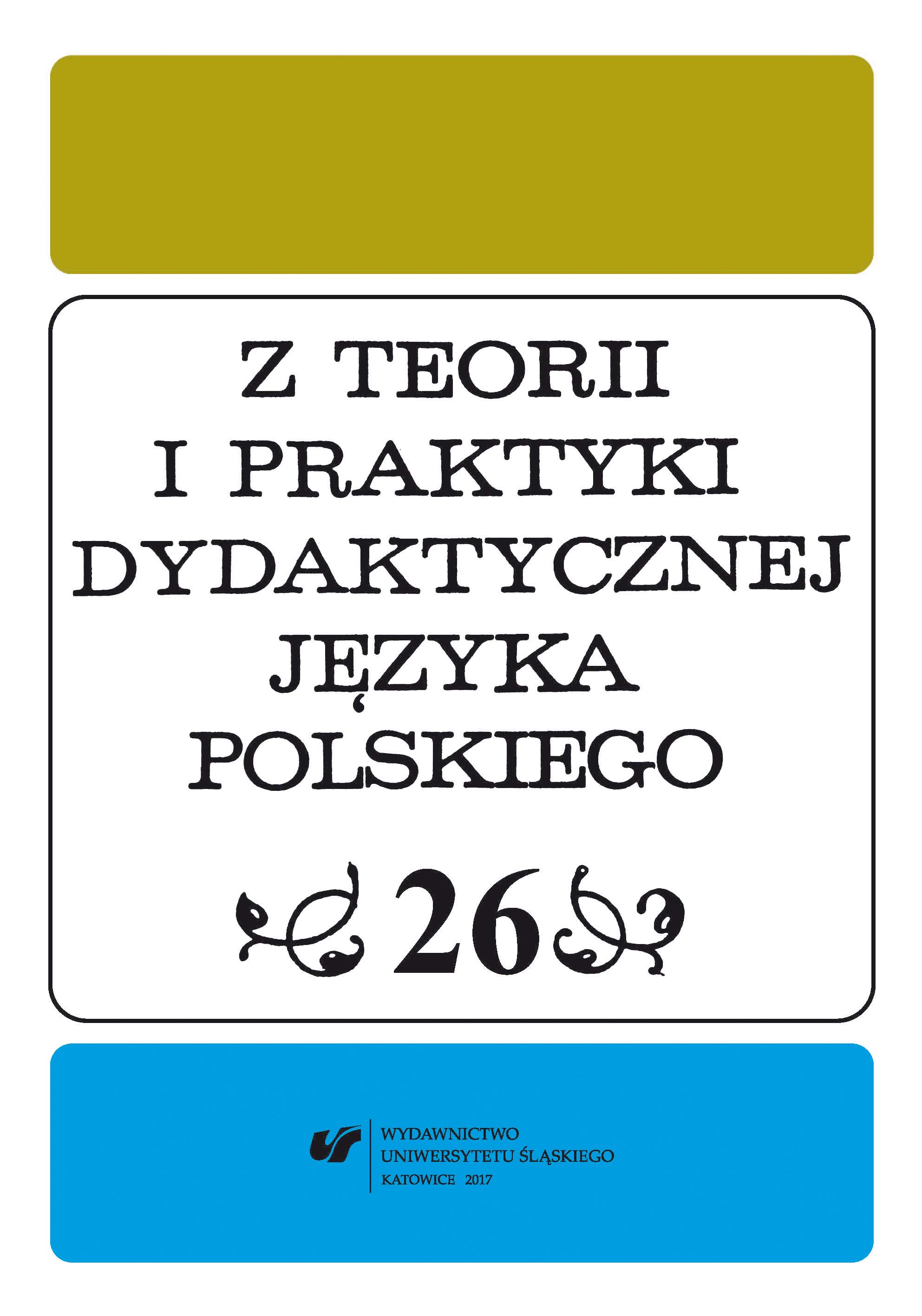
The review presents the monograph by Marta Szymańska entitled „Between the language teaching and language education. The concepts of language education at the turn of the 20th and 21st century”. The author of the monograph presents the development of the concepts in the education of Polish language in order to present her own paradigm at the end. In this new concept Szymańska does not reject the attainment of the predecessors, but she outlines an innovative, anthropocentric proposal combining selected components of earlier concepts and elements belonging to other disciplines.
More...
The aim of the review article is to present and discuss the work by H. Wiśniewska „Around Polish education at school. Theory and practice”, edited by M. Karwatowska and L. Tymiakin. The presentation of the composition of the volume and the scope of the referenced content has become the basis for distinguishing the areas that complement and organize the current state of research related to broadly understood education, language education and linguistic competence of students. The presentation of the outline of the issues undertaken by the author also allows us to realize that Polish language education is multi‑disciplinary in terms of linguistics and culture.
More...